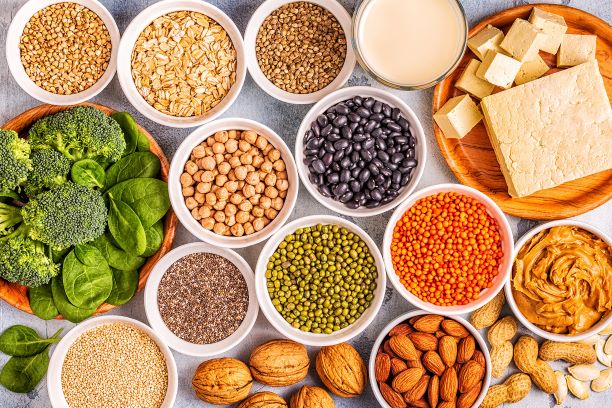Rising Food Costs Make Plant-Based Eating an Attractive Option
Have you noticed your grocery bill getting more expensive? You’re not alone. About 90% of Americans are concerned about food prices, according to a recent survey conducted by The Harris Poll on behalf of Alpha Foods.
Data from the Bureau of Labor Statistics shows that Americans are spending nearly 12% more on groceries than a year ago. A combination of macroeconomic factors, such as the rising cost of gasoline, supply-chain bottlenecks, and global uncertainty has made food more expensive and forced consumers to rethink some of their purchases. In the past 12 months, the price for a dozen eggs has risen over 30%, while the prices of other dietary staples like milk, chicken, butter, soup, and cereal are up significantly as well.


However, there may be a silver lining amidst the higher costs of meat and dairy. More than half of the survey respondents said that, “rising meat prices made them more curious about trying plant-based foods and dairy options.” And this is a good thing. Research shows that shifting to a plant-based diet can help reduce the risk of developing chronic diseases like type 2 diabetes, obesity and cardiovascular disease, as well as provide a variety of health benefits, such as lower blood pressure and a healthy weight. Eating less meat and more plant-based foods also benefits the environment by reducing greenhouse gas emissions, preserving the forests, conserving water, and protecting biodiversity. Plus, these foods are typically less expensive and easy to store and prepare.
“Many of the foundational ingredients of a plant-based diet are shelf-stable, cost-effective, and purchasable in bulk,” said Dana Smith, campaign director for Meatless Monday, in an interview with U.S. News. “Foods like beans and peas – canned or dried – tofu, frozen vegetables, grains like brown rice or quinoa, dried pastas, fresh fruits and vegetables can feed a family for a fraction of the cost of a fast-food meal.”
Getting started with plant-based eating isn’t hard, nor is it much of a departure from typical meal prep and planning. Many traditional meat-focused dishes can be made using less expensive plant-based ingredients, such as beans, lentils, cauliflower, and tofu. The key to incorporating these foods into dishes the whole family will enjoy is to match up the flavors through the use of seasonings and sauces. Even a summer cookout can be recreated using minimal animal products.
If interested in plant-based eating, the Meatless Monday Challenge is a good place to start. Participants receive weekly tips, recipes, and articles to clear up questions one may have about plant-based cooking. And the best part is that many of these ingredients are affordable and sustainable compared to their animal-protein counterparts, sometimes costing less than half the price. So check out the Meatless Monday website to learn more about plant-based foods and how they can save you money.